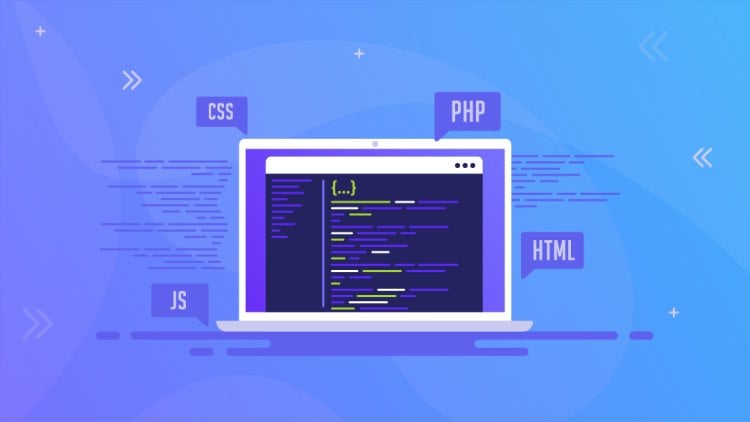Rapidly changing technology is an integral part of today’s business. Companies must deal with the challenges of digital transformation by building an IT infrastructure compliant with business requirements. The success of the project depends on the choice of technologies. One of these challenges is the choice of server technology: Nginx vs. Node.js.
Creating a stable and reliable server is critical in app development. Web technology refers to the client and server-side that is invisible to users and includes backend language, database, and server. Both Node.js and Nginx support the web as they are the most widely used server-side technologies, and both can run applications of any complexity.
Advantages and disadvantages of PHP with Nginx
PHP stands for Personal Home Page Tools and Hypertext Preprocessor. It is an open server-side scripting language created in 1994 by Rasmus Lerdorf. It has been a remarkable success since its inception. A recent study showed that 77.4% of websites use PHP. It is one of the most widely used open-source scripting languages used to create dynamic websites and applications.
You can read more about the importance and characteristics of PHP in the following article.

Nginx is one of the two most popular web servers that can interpret PHP. PHP doesn’t work without a web server. Nginx is more efficient and faster than Apache and works much more stable, so in this article, we will focus on comparison Nginx vs. Node.js.
Advantages of PHP
- Supports CMS systems, including WordPress;
- It is easy to set up the development environment and process;
- A strong community of web developers contributing to language development, supporting software, and training materials;
- The code has a neat syntax that makes it easy to write lines of code quickly;
- Nginx is a standard in hosting plans.
Disadvantages of PHP
- Interpreted code is slower because it processes line by line, executing the following function only after the previous one;
- Web-oriented runs on the backend of your website;
- It lacks performance when it comes to detecting, filtering, and fixing code errors;
- Legacy from older versions can cause chaos.

Advantages and disadvantages of Node.js
Node.js is a JavaScript runtime. Developed by Ryan Dahl in 2009 to create scalable and fast applications. Rapidly gained popularity in the developer community because it delivers applications with high performance and stability thanks to the V8 JS engine.
Node.js executes JavaScript beyond the confines of the web browser, working directly with the operating system. Using JavaScript, you have access to the API of the operating system, including the file system, system libraries, or running processes (e.g., HTTP servers).
This technology provides access to many asynchronous operations, making applications more responsive. Node.js aims to unify the development of web applications using only JavaScript. And that’s what makes the Nginx vs. Node.js is so exciting.
Advantages of Node.js
- Can process multiple functions and events in parallel. Node.js is best suited for asynchronous real-time applications;
- It uses JavaScript throughout the application (backend and frontend), making code operations very convenient;
- JavaScript asynchronous processing allows you to create highly scalable solutions on the server side while maximizing the use of its CPU and memory;
- Allows you to establish a real-time client-server connection;
- Easy work with JSON.
Disadvantages of Node.js
- The module ecosystem is still immature – not suitable for managing large files;
- Content Management Systems do not support Node.js;
- It is inefficient for web applications that render sophisticated graphics.
PHP with Nginx vs. Node.js
It is impossible to determine whether it is better to choose PHP with Nginx vs. Node.js. Each has its advantages and disadvantages, so the most important thing is to choose the technical specification for the type and needs of the project.
Coding speed
A simpler language needs less code to execute the program. Node.js requires much more lines of code to perform the same functionality as PHP. On the other hand, PHP works with fewer lines of code but requires Nginx to interpret the code. In coding speed comparison PHP with Nginx vs. Node.js, the second one is the clear winner.
PHP requires a web server and interpreter to run, but there are applications that allow you to create a local PHP environment. Check out the best WAMP/LAMP solution that will allow you to develop PHP applications on your computer.

Speed of execution and handling of requests
High turnaround speed means a faster development process and more profitable projects. Node.js is asynchronous, which gives it an advantage. There’s no need to wait for a module to execute successfully before loading the next one, dramatically reducing web application downtime and ensuring a seamless user experience.
PHP is synchronous, which means that code is executed line by line. PHP offers slower code execution routines because all modules or functions are processed in a specific order.
Efficiency
Performance is one of the most crucial metrics for evaluating an app as it affects the user experience, smooth operation, and page loading speed. Node.js works asynchronously and uses the Chrome V8 engine to speed up command execution. While performance is also the result of the development team’s skill and experience, Node.js has several advantages over PHP:
Fewer dependencies – every request to the PHP project must be directed to Nginx, and the web server runs a PHP interpreter, which processes the code and serves it. Node.js doesn’t require that many dependencies. It is lightweight and manages various aspects of the application.
No Translator – Node.js is more agile and faster because it doesn’t need interpretation. The processor executes the compiled code in its native language. PHP must be translated from its original format during execution into CPU machine instructions by Nginx and its interpreter. The translation makes the language slower.
Event-driven, non-blocking I/O – Most server-side languages, including PHP, use a blocking model. When you request information from the database, the request will complete the process before moving on to the following statement. With Node.js you can create callbacks that listen to processes and execute them simultaneously.
Some PHP actions can be accelerated using Hack (object-oriented programming language) through HHVM (an open-source virtual machine designed to execute programs written in Hack).
Databases
Conventional databases store data hierarchically, while relational databases store data using tables, which makes them a convenient format for detecting relationships. There are also non-relational NoSQL databases that store data in formats such as documents, charts, or key pairs. They provide flexibility and scaling along with large amounts of data or user load.
PHP works with relational and traditional databases such as MariaDB, PostgreSQL, and MySQL. It can also be used with Redis, MongoDB, ElasticSearch, and other non-relational databases. Thanks to this, web developers are not limited to using a specific database and can choose the best matching database for the project.
On the other hand, Node.js works seamlessly and perfectly with SQL databases, NoSQL databases (CouchDB and MongoDB), graphical database systems (Neo4j), and NPM packages. If you’re looking to develop a scalable web project that pulls data from relational, conventional, or NoSQL databases consistently and seamlessly, Node.js is the way to go.

Functionality and development
PHP is a backend programming language that limits its use in applications. To test, manage, and design a functional web application, you need CSS and HTML. For most professionals, coding in PHP is a faster option though, because there is no need for converters or compilers. It allows you to connect to a database without hosting restrictions.
However, there is a trade-off – PHP projects do not run as fast as those developed in Node.js. It combines some features into one package without fragmenting the functionality. With Node.js, you can create integral backend models, but they still require Nginx to provide an HTTP framework and databases.
In the case of Node.js, the implementation seems much more complicated, but it runs smoother and faster because it provides a low server load.
Popularity and use
Node.js is used in multi-threaded applications, web applications, browsers, or games. This technology is perfect for creating dynamic, single-page, real-time, data-intensive applications.
Examples of Node.js use include streaming services (Netflix), instant messaging (Slack), social networks (Twitter), fintech applications (PayPal), project management tools (Trello, Asana), gaming applications, live chats, devices, and data-intensive IoT applications.
PHP is also commonly used in web applications. And because it’s built as a backend-centric language, it can be integrated with servers, databases, and HTML. You can use PHP to develop CMS systems that allow you to configure a web project quickly. It works well to build eCommerce marketplaces, effective websites, email marketing platforms, or blogs.
The practical applications of these technologies vary and depend on the project you want to develop.
Community and ecosystem
PHP has been around since 1994 and has proven its reliability and revolutionary technology. It has a much larger community that contributes to creating libraries and finding solutions that allow a given technology to gain a competitive advantage. With WordPress powering millions of websites and using PHP as the backend, this technology has become immensely popular.

Node.js is a relatively new technology (2009). Even though Node is a popular backend development tool and is gaining even more popularity, the community is smaller. Node projects are newer and more relevant to current developers. The way the community develops solutions in Node.js facilitates the development of current projects.
The community focuses on adding unique functionalities to Node.js rather than serving as a library for importing functions from other languages.
Conclusion
As you have already noticed, both Node.js and PHP have their pros and cons. Neither will solve all technical problems. The primary criterion for determining the architecture of your project is the knowledge of the scope of functional requirements. A well-designed, well-thought-out architecture will allow you to answer which of the crucial elements of the project may be problematic.
Node.js is the perfect choice for building dynamic one-page applications using Angular, React, and JQuery for the frontend. Node is part of the MEAN stack (MongoDB, Express.js, Angular, and Node.js), so its use makes sense if your stack consists of these tools. It can self-power IoT devices such as fitness trackers, drones with non-destructive testing and other capabilitie, and robots, as well as streaming platforms.
PHP is a good choice for dynamic website content and is mainly used for web development. Immense popular is the use of PHP for blogs and eCommerce sites that require a lot of integrations.
Who won: Nginx vs. Node.js? Now you can buy your Node.js Hosting plans or check out Nginx Hosting plans. Yes, we support both solutions! Get 24/7 support from our support team. Our powered infrastructure focuses on auto-scaling, performance, and security. Let us show you the difference!








